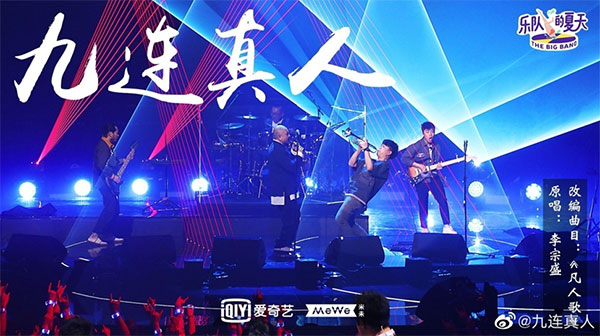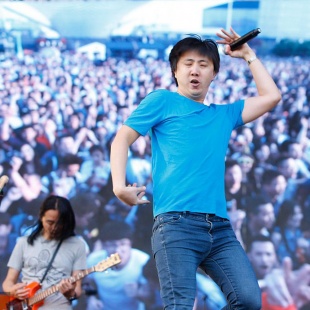A new chapter for Chinese indie music


What next for Chinese indie music?
The Big Band recently partnered with Taihe Music Group, a major Chinese record label, to launch an online campaign where people can vote for their favorite band. The campaign aims to identify talent for the show's next season and has already attracted hundreds of bands.
Some say however that the show's success doesn't bode well for all musicians in the industry, arguing that bands need sophisticated promoters rather than reality shows.
Jiulian zhenren's success for example is no coincidence – the band's promoter, Huang Liaoyuan, is a figure of some influence on China's rock scene who also discovered Second Hand Rose and Tang Dynasty in the 1990s.
Few bands will ever sign with a label or have their own promoter. Many musicians also struggle to accept and conform to commercial rules.
A-list bands like New Pants and Escape Plan command appearance fees of hundreds of thousands yuan, but most lesser known acts hardly get a chance to perform. Even if they release a record, they rarely get a significant share of royalties, said Zhang Fan, Beijing Midi School of Music founder.
The influence of a hit show can last for a relatively short period. If the whole industry looks to develop, growing a massive fan base is necessary, which calls for long-term hard work, said Shen Lihui, Modern Sky founder, China's largest indie music label.
If a show allows the public to get to know and love bands' work, making them more commercial, and musicians can get a larger share of the rewards, then a positive cycle is formed, said Wang Lei, Tencent Music general manager.
Royalties paid out by domestic music streaming services have since 2012 increased 100 times, most of which has gone to indie musicians, Wang said.
Yang Xiaoyu contributed to this story.





































